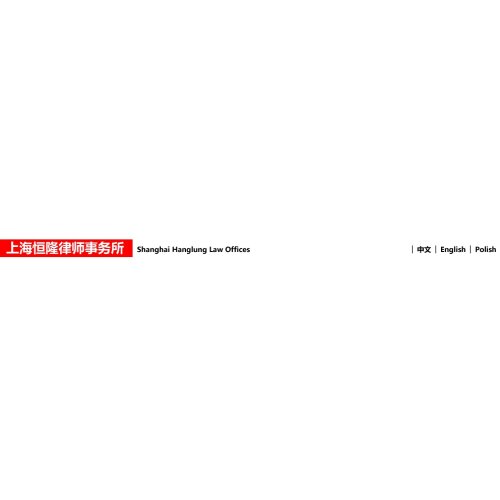Best Real Estate Contracts and Negotiations Lawyers in China
Share your needs with us, get contacted by law firms.
Free. Takes 2 min.
Free Guide to Hiring a Real Estate Lawyer
Or refine your search by selecting a city:
List of the best lawyers in China
About Real Estate Contracts and Negotiations
Real estate contracts and negotiations in China can often be complex and nuanced due to the unique legal environment, regional differences, and the rapid development of the country's real estate sector. Contracts in this field cover a wide range of transactions including buying, selling, leasing, and developing properties. Understanding these contracts and effectively negotiating terms requires a solid grasp of both contractual laws and the particularities of the real estate market in China.
Law in China: A Brief Overview of Real Estate Contracts and Negotiations
Real estate law in China involves a blend of national regulations and local rules. The primary legal framework is provided by the Property Law of the People's Republic of China, which lays down the rights and responsibilities related to immovable property. Additionally, the Contract Law of China sets the general principles governing contracts, including those related to real estate. Navigating these laws is essential for formalizing any property transaction, as non-compliance can lead to legal challenges.
Why You May Need a Lawyer
Seeking legal assistance from a qualified lawyer specializing in real estate contracts and negotiations can be crucial in several scenarios, including:
- Drafting and reviewing property sale or purchase agreements to ensure they comply with current laws.
- Negotiating complex property leases or resolving disputes between landlords and tenants.
- Investing in property development projects that require due diligence and legal risk evaluations.
- Resolving disputes arising from breaches of contract or property rights infringements.
- Navigating cross-border transactions involving foreign property investments or ownership.
Local Laws Overview
Key aspects of local laws concerning real estate contracts and negotiations involve:
- Land Use Rights: Unlike many countries, land in China is owned by the state or collective entities. This means buyers must understand the terms and duration of land use rights relevant to their transaction.
- Contract Registration: Real estate contracts often need to be registered with local government authorities to be recognized as legally valid, highlighting the importance of understanding local administrative procedures.
- Tax Obligations: There are specific tax duties on various real estate transactions including purchase, sale, and transfer of property rights, demanding careful financial planning and legal guidance.
- Foreign Investment Restrictions: Foreign entities or individuals face certain restrictions when acquiring property in China, necessitating specialized legal assistance.
Frequently Asked Questions
What are the typical components of a real estate contract in China?
A real estate contract in China typically includes details such as the identification of the parties involved, description of the property, rights and obligations of the parties, price and payment terms, breach of contract and remedies, and dispute resolution mechanisms.
Are verbal agreements considered binding in Chinese real estate transactions?
While some verbal agreements can have a legal standing in minor transactions, real estate deals typically require written contracts to be enforceable due to their complexity and value.
How is property ownership documented in China?
Ownership is documented through land use certificates and property ownership certificates, which prove legal entitlement to use and own property under specified terms.
Can foreigners buy property in China?
Foreigners can purchase property in China under certain conditions, typically requiring residence for more than one year and being limited to one residential property for self-use.
What is the process for registering a real estate contract?
Registration involves submitting the real estate contract to local real estate transaction centers, along with necessary documents such as identity proofs and property certificates, following which the transaction becomes legally binding.
What should be done in case of a contractual dispute?
Parties should first attempt negotiation. If unresolved, mediation or arbitration through designated bodies can be pursued. Litigation in Chinese courts is a last resort.
What role do real estate agencies play in negotiations?
Real estate agencies can facilitate negotiations and offer market insights. However, they typically work on commission, so verifying their interests and ensuring fair representation is important.
Is it necessary to conduct due diligence before purchasing property?
Conducting due diligence is crucial to uncover potential legal issues, such as encumbrances or zoning law violations that could affect the validity of a property transaction.
How are disputes usually resolved in real estate negotiations?
Most disputes are resolved amicably through negotiation, or if necessary, through formal mediation or arbitration. Court proceedings are less common due to their complexity and potential delays.
What languages are real estate contracts typically written in?
Contracts are typically drafted in Mandarin, the official language. However, for international deals, bilingual contracts (Mandarin and another language) may be used for clarity, always ensuring legal equivalency.
Additional Resources
There are several resources and governmental bodies that individuals can consult for legal advice and assistance:
- Ministry of Housing and Urban-Rural Development: Provides guidelines and policies related to real estate development and housing laws.
- Local Real Estate Transaction Centers: Offer services related to the registration and validation of real estate transactions.
- China Real Estate Association: An industry body offering resources and insights into the real estate market.
- Professional Real Estate Legal Service Firms: Offer detailed legal assistance and support in negotiating and drafting real estate contracts.
Next Steps
If you need legal assistance in real estate contracts and negotiations, consider the following steps:
- Conduct preliminary research to understand the specific nature of your legal issue.
- Consult with a professional legal advisor or a law firm specializing in real estate to discuss your situation and explore options.
- Gather all necessary documentation and information relevant to your case.
- Decide on the specific objectives you want to achieve, such as contract drafting, dispute resolution, or investment advice.
- Engage with legal services that offer expertise aligned with your needs, ensuring they have a strong understanding of both local and national real estate laws.
By following these steps, you can navigate the complexities of real estate contracts and negotiations in China more effectively and make informed decisions to protect your interests.
Lawzana helps you find the best lawyers and law firms in China through a curated and pre-screened list of qualified legal professionals. Our platform offers rankings and detailed profiles of attorneys and law firms, allowing you to compare based on practice areas, including Real Estate Contracts and Negotiations, experience, and client feedback.
Each profile includes a description of the firm's areas of practice, client reviews, team members and partners, year of establishment, spoken languages, office locations, contact information, social media presence, and any published articles or resources. Most firms on our platform speak English and are experienced in both local and international legal matters.
Get a quote from top-rated law firms in China — quickly, securely, and without unnecessary hassle.
Disclaimer:
The information provided on this page is for general informational purposes only and does not constitute legal advice. While we strive to ensure the accuracy and relevance of the content, legal information may change over time, and interpretations of the law can vary. You should always consult with a qualified legal professional for advice specific to your situation.
We disclaim all liability for actions taken or not taken based on the content of this page. If you believe any information is incorrect or outdated, please contact us, and we will review and update it where appropriate.
Browse real estate contracts and negotiations law firms by city in China
Refine your search by selecting a city.














